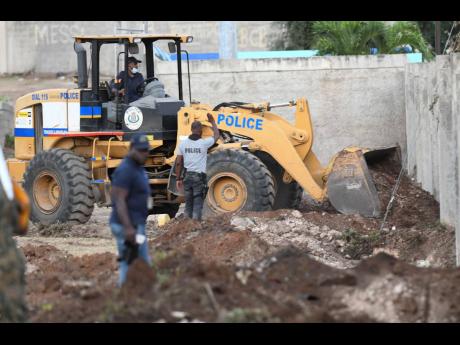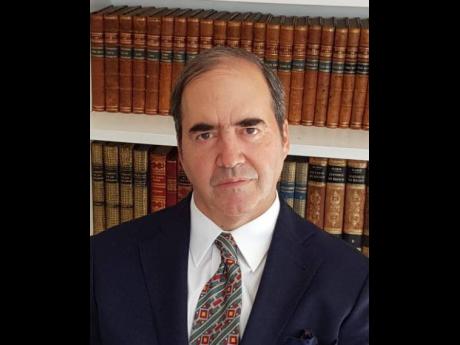Juan González Mijares | Collective fight against illegal guns
Mexico welcomes the support of Caribbean countries in its lawsuit against gun manufacturers and distributors for damages caused by their facilitation of the illegal flow of guns into Mexico and the Latin America and Caribbean (LAC) region.
On March 21, the American law firm Paul Weiss, Rifkind, Wharton & Garrison LLP filed an Amicus Curiae brief in the United States Court of Appeals for the First Circuit on behalf of interested third parties in an appeal filed by Mexico on the civil lawsuit against US-based firearms manufacturers and distributors (Smith and Wesson Brands, Inc.; Barret Firearms Manufacturing, Inc.; Berretta U.S.A. Corp.; Glock, Inc.; Sturm, Ruger & Company, Inc.; Witmer Public Safety Group, Inc.; d/b/a Interstate Arms; Century International Arms, Inc.; Baretta Holdings Spa; Glock Ges. M.B.H. Colt’s Manufacturing Company), Llc whose negligent acts and omissions have caused direct and indirect harm beyond US borders. The appeal insists that the US law that grants immunity to these manufacturers in this country has no effect on damages caused outside of the US, including Mexico.
Antigua and Barbuda, Belize, Bahamas, Jamaica, and Trinidad and Tobago, together with eight other briefs presented by US law-enforcement officials, attorneys from 17 US states, 24 US District Attorneys, Mexican jurists, victims of gun violence and NGOs from both sides of the border joined as “friends of the court”, recognising that although Mexico is the only plaintiff, defendants’ business practices have facilitated the illegal traffic of arms that flood the region, causing havoc in our societies and the highest index of violent deaths of the world.
This support not only makes evident the trust in the strength of the Mexican arguments, but also reflects the growing activism in favour of greater arms control and responsible trade. The base of the argument presented in the Amicus is that the Latin-American and Caribbean region faces an unprecedented crisis of gun violence caused by the ubiquity of illegal firearms. According to the public sources quoted in the Amicus, gun violence is one of the most pressing public-health crises facing the LAC region today. The region accounts for 8 per cent of the world´s population but 37 per cent of the world homicides. The region has recorded approximately 20,000 firearms homicides and shootings in the past decade, with firearms used in 70 per cent of homicides (compared to 30 per cent globally).
LINKED CLOSELY
Firearms availability is linked closely to “homicides related to gangs or organised crime”. American manufacturers are the most significant source of illegal firearms to LAC. Researchers have estimated that about 873,000 guns are trafficked from the US into Mexico each year. Fifty per cent of all guns involved in criminal activity were traced back not just to the US, but to the defendants in particular. Based on the Bureau of Alcohol, Tobacco, Firearms and Explosives (ATF) data for 2021, for many Central American and Caribbean countries, more than half of all firearms submitted for tracing were manufactured or trafficked through the US, Belize (64.8 per cent), The Bahamas (99.2 per cent), the Dominican Republic (86.2 per cent), Haiti (84.8 per cent), Jamaica (69.4 per cent), and Trinidad & Tobago (51.7 per cent).
The playbook for trafficking guns from America to the LAC region is well-known. They design, advertise, and sell in ways that routinely arm drug cartels, mainly in Mexico. Instead of producing and selling guns in a way that prevents their illegal trade, they choose to continue supplying the market because they profit from it. Practices like gun shows and use of secondary sources, the recruit of “straw purchasers”, and bulk purchasers are part of the trade, especially in cities close to the Southern border. There can be no doubt that the US gun industry practices have caused significant harm not only to Mexico, but also to the nations of the Caribbean.
Despite a significant amount of information, companies have not implemented any public-policy measures to monitor or discipline their distribution systems. This is the heart of the matter at the base of Mexico´s innovative approach to take the case to the US courts in order to get liability, pay damages, and to implement responsible best practices to mitigate the illicit traffic of arms like the implementation of standards and guidelines to reasonably monitor their distribution systems, incorporate safety mechanisms into their guns, fund studies and advertising campaigns focused on preventing unlawful arms trafficking, etc. A sense of co-responsibility is needed; a basic cooperation is urgent.
The decision taken by the Caribbean countries to participate in the Amicus is of the utmost importance for Mexico and the LAC region. It is a signal aimed at reinforcing our cooperation and coordination at the global, regional, and bilateral levels in our long battle for the security and social stability of our countries. It reflects and responds to the priorities presented by leaders like Prime Minister Andrew Holness of Jamaica and Prime Minister Philipp Davis from The Bahamas, among others, at the last United Nations General Assembly, highlighting the illicit traffic of arms as one of the most urgent problems in their countries.
PREVENT SUPPLY OF FIREARMS
Recognising the severity of the harm caused by the illicit traffic and diversion of arms, the United Nations’ Security Council has recently passed a unanimous resolution directing member states to take action to prevent the direct or indirect supply of firearms. We also have a similar forum of cooperation in the Inter-American Convention against the Illicit Manufacturing of and Trafficking in Firearms, Ammunition, Explosives, and Other Related Materials (CIFTA). On November 11, 2022, Mexico requested an advisory opinion before the Inter-American Court of Human Rights regarding the arms trade and its impact on human rights. The Community of Latin American and Caribbean States (CELAC) adopted in January a declaration warning against the dangers of this illicit traffic and associated collateral damage in the social tissue of our communities. The Mexico-CARICOM Summit that will take place in Chetumal, Mexico, next May 13 will be a singular opportunity to discuss and reinforce our dialogue and cooperation against the illicit traffic of arms and its main source.
The novel approach of seeking to redress the damage caused to the region by the main players in firearms production and distribution in the US initiated by Mexico since 2021 and now with the support of Jamaica, The Bahamas, Trinidad and Tobago, Belize, and Antigua and Barbuda, has to be singled out and pursued, including the strengthened and focused cooperation at the bilateral and CARICOM levels. Further, it can facilitate our dialogue with authorities and institutions in the US that are in favour of introducing measures to mitigate the illicit traffic of arms, which causes the high prevalence of lethal violence in our region.
The Government of Mexico wishes to thank this overwhelming show of support from the Caribbean countries and multiple stakeholders from all over the world that will translate into a greater security for our peoples.
- Juan González Mijares is ambassador of Mexico to Jamaica, The Bahamas, and permanent representative to the International Seabed Authority. Send feedback to columns@gleanerjm.com.



